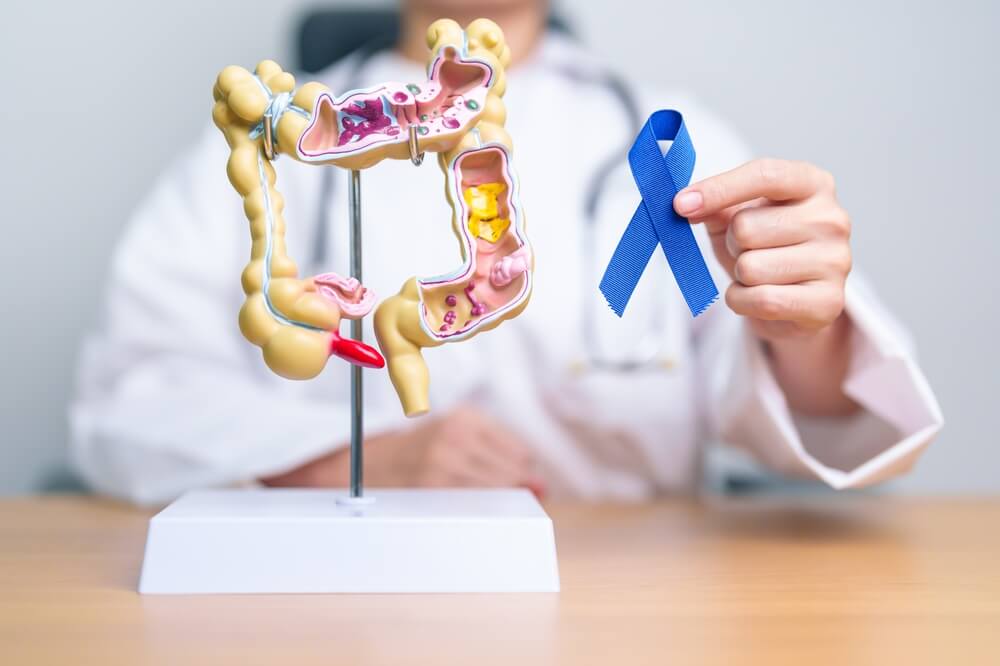As a critical health concern worldwide, colon and rectal cancer, collectively known as colorectal cancer, continues to affect a significant number of individuals. Knowledge, awareness, and understanding of these conditions can save lives. The power to detect, diagnose, and undertake early treatment rests upon the wisdom of recognizing the symptoms and understanding the causes of this disease. Since colorectal cancer often goes unnoticed in the early stages, it is essential to have a comprehensive insight into its telltale signs.
According to the World Health Organization, colorectal cancer is the third most common type of cancer, making its prevalence and incidence in public health significant. In addition, the fact that it is the second leading cause of cancer-related deaths worldwide underscores the urgency to address this disease aggressively. To find high-quality colon surgery in Palm Beach County, you need to do proper research. Medical centers such as Advanced Surgical Physicians reveal and actively voice the deep relevance of colorectal cancer in the global health landscape, necessitating diligent attention for its management and prevention.
As we throw light on the symptoms and causes of colorectal cancer, we foster an environment of informed individuals capable of battling the disease effectively. By boosting knowledge and awareness, we can help increase early detection rates and improve the odds of successful treatment and survival.
Understanding Colorectal Cancer
Colorectal cancer is a term that encompasses two related forms of cancer: colon cancer and rectal cancer. These cancers develop in the colon or rectum, components of the digestive system, which play important roles in the digestion and removal of food waste from the human body.
Elucidating the Meaning and Nature of Colorectal Cancer
Colorectal cancer involves the growth of abnormal cells, or tumors, within the lining of the colon or rectum. The nature of these tumors can be either benign or malignant. While benign colorectal tumors, also known as polyps, do not spread, they can become malignant over time. Malignant colorectal tumors, on the other hand, have the potential to multiply uncontrollably, spread to other parts of the body, and pose a serious health threat. The transition from early stages to advanced colorectal cancer differs significantly between individuals.
Colorectal cancer treatment, whether it involves colorectal surgery or other therapies, depends predominantly on these cancer stages.
Delineating the Areas of the Human Body Where Colorectal Cancer Primarily Occurs
The colon, which forms an integral part of the large intestine, is one of the main sites where colorectal cancer occurs. It is divided into four parts: ascending colon, transverse colon, descending colon, and sigmoid colon. Each of these parts can develop colorectal tumors, leading to colon cancer.
Rectal cancer, the second primary type of colorectal cancer, arises in the last several inches of the large intestine— the rectum. Similar to colon cancer, rectal cancer can manifest at different stages and require a range of treatment strategies.
Regardless of whether the disease occurs in the colon or rectum, early detection of colorectal cancer and prompt diagnosis can significantly improve the prognosis. Understanding the symptoms, undergoing regular colorectal cancer screening, and being aware of colorectal cancer risk factors can make a pronounced difference in handling this disease effectively.
Symptoms of Colorectal Cancer
The symptoms of colorectal cancer vary, and they often depend on the location of the tumor, its size, and how far the cancer has advanced. Early detection of these symptoms can aid in the timely diagnosis of the cancer, significantly increasing treatment options and the chances of a successful outcome.
Physical Manifestations of Colorectal Cancer
Common physical manifestations of colorectal cancer include:
- changes in bowel habits such as diarrhea, constipation, or a difference in the consistency of the stool,
- blood in the stool,
- rectal bleeding,
- persistent abdominal discomfort,
- cramps,
- gas or pain,
- a feeling that the bowel does not empty completely,
- weakness or fatigue,
- unexplained weight loss,
- iron deficiency anemia.
These symptoms should not be ignored, and immediate medical consultation is recommended when they persist.
It is also important to mention that some of these symptoms are common for other conditions and diseases. For example, hemorrhoids can cause blood in the stool, and changes in bowel movement could be indicators of dietary changes or Irritable Bowel Syndrome (IBS).
However, these symptoms should not deter individuals from getting screened; detection of colorectal cancer in its early stages can lead to better outcomes.
Impact of Symptoms on the Patient’s Well-being And Lifestyle
The impact of colorectal cancer extends beyond physical manifestations, with symptoms significantly affecting daily activities and overall quality of life. Constant fatigue can hinder productivity and engagement in social activities. Sudden and unexplained weight loss can drastically alter dietary habits. And chronic pain can limit mobility.
Psychological well-being can also be affected. The diagnosis of colorectal cancer can lead to fear or anxiety, while the prospect of colorectal cancer surgeries, therapies, and their potential side effects can cause additional distress.
The mitigation of this physical and emotional strain is an integral part of colorectal cancer treatment. Healthcare providers often encourage patients to find balance—maintaining a healthy diet for strength, participating in mild physical activity, seeking mental health supports, and ensuring regular follow-up screenings. Clustered together, these can manage the physical symptoms and mental stresses associated with colorectal cancer, keeping patients confident and hopeful for a positive prognosis.
Causes and Risk Factors of Colorectal Cancer
While the exact cause of colorectal cancer may not be known, several factors contribute to its development. These include a combination of genetic, lifestyle, and environmental factors. Understanding these risk factors is essential for early detection and effective prevention strategies.
Common Etiological Factors Contributing to Colorectal Cancer
A crucial etiological factor contributing to colorectal cancer is age, with the risk increasing after the age of 50. Other medical conditions, such as inflammatory bowel disease (Crohn’s disease or ulcerative colitis), also elevate the risk. A personal or family history of colorectal cancer or precancerous colorectal polyps can increase the likelihood of developing this disease.
A diet high in red or processed meat has been linked with colorectal cancer. The correlation may be due to the chemicals formed during the cooking process or the nitrate preservatives used in processed foods. Conversely, a low-fiber diet has also been associated with colon cancer.
Lifestyle choices influence the risk as well. Sedentary behavior, obesity, smoking, and heavy alcohol consumption are associated with a higher risk of colorectal cancer. Type-2 diabetes patients are also at a higher risk.
Lifestyle Choices and Genetic Factors that Increase the Risk of Colorectal Cancer
Modifying lifestyle choices can play a significant role in reducing the risk of colorectal cancer. Smoking cessation, regular exercise, moderating alcohol consumption, maintaining a proper body weight, and adopting a high-fiber diet with reduced meat can be beneficial.
On the genetic front, certain inherited gene mutations can increase colorectal cancer risk. Familial adenomatous polyposis (FAP) and Lynch syndrome, also known as hereditary nonpolyposis colorectal cancer (HNPCC), are examples of inherited conditions that increase the risk of colorectal cancer.
Despite these genetic risk factors, most people who develop colorectal cancer do not have a family history of the disease. Instead, genetic changes that occur after birth, along with environmental exposures and lifestyle choices, contribute significantly to most colorectal cancers.
Knowledge about the effect of such risk factors on colorectal cancer aids in establishing preventative measures and deciding on periodic colorectal cancer screening, especially for high-risk individuals. Early detection and subsequent colorectal cancer treatment can significantly improve survival rates and reduce the burden this disease places on lives.
Empowering Ourselves Against Colorectal Cancer
Understanding the symptoms and causes of colorectal cancer is of paramount importance for all, irrespective of age or gender. Comprehensive knowledge about this disease aids in recognizing early signs and symptoms, informing changes in lifestyle choices to actively mitigate the risks, and spurring necessary and timely medical consultations.
Early detection of colorectal cancer can drastically increase the potential for successful treatment—ranging from minimally invasive surgery to other therapies—and improve survival rates. Moreover, acknowledging the influence of genetic risk factors and specific lifestyle choices on developing this disease can empower individuals to take charge of their health, reinforcing the significance of preventive measures.
A healthy diet, regular exercise, abstaining or moderating alcohol and tobacco use, weight management, and most importantly—regular check-ups and screenings—can be effective in thwarting or slowing the growth of colorectal tumors.
Health is a wealth that everyone possesses and has the agency to protect. By utilizing professional healthcare services, adhering to recommended screening guidelines, and seeking medical advice when symptoms manifest, we can build an empowered and informed community, capable of criminalizing colorectal cancer before it reaches advanced stages. Take the initiative, and call us today, because you have the power to prevent, detect, and combat colorectal cancer so let us help you in that process!



